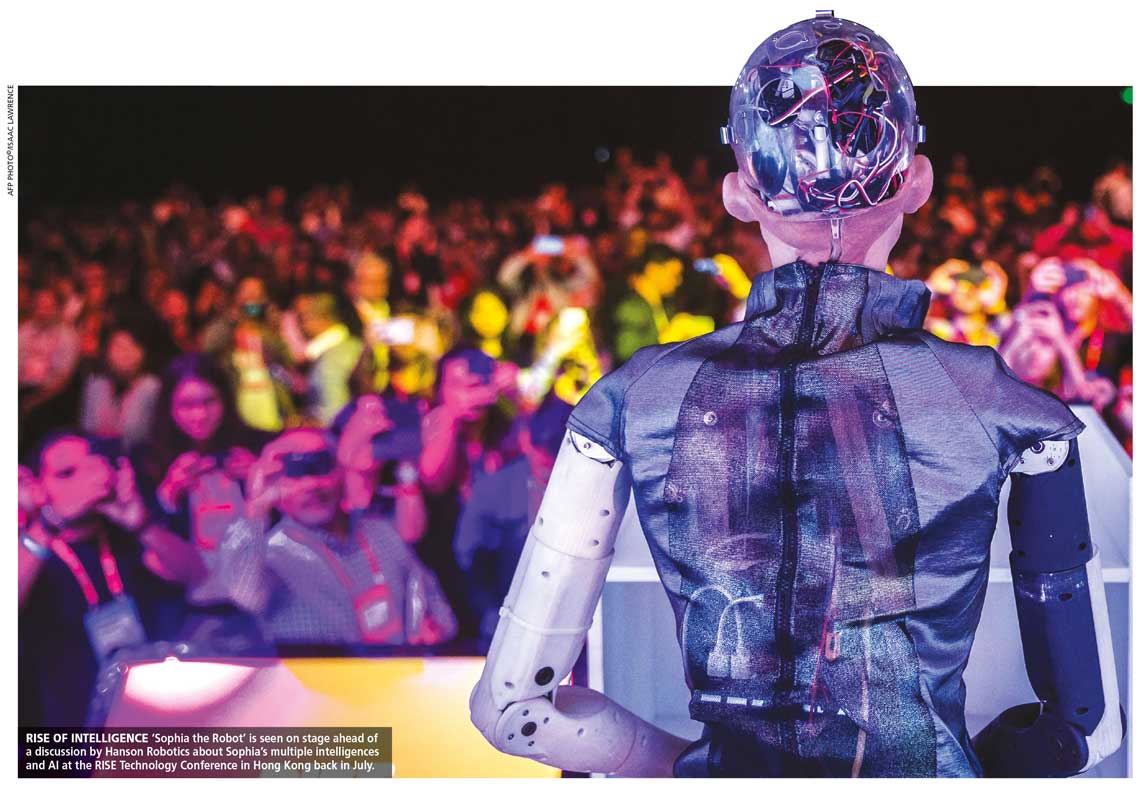MARKETING STRATEGY

A SHINING BEACON OF BIZ
Firms have begun relying on artificial intelligence as a strategic tool – Sanjeewaka Kulathunga

Artificial intelligence has become quite popular in recent years. With the advent of the IT revolution, global corporate entities have been using artificial intelligence for various functions to gain a competitive edge over their rivals.
Meanwhile, AI’s proven track record of efficiency and accuracy has resulted in a boom in related production around the world.
In 2016, DeepMind AlphaGo – an artificial intelligence programme created by Google – was able to defeat world champion Ke Jie in the strategy board game called Go. This was an eye-opener for the use of AI being at the forefront of technology and innovation.
Since then, numerous AI applications have been developed across various business functions. A novel trend in the corporate world is seeing business leaders relying on AI to plan and strategise their marketing efforts. It is one of the best forms of technology, which is able to imitate the human mind and intelligence, to take quick and accurate decisions.
Even though there is a wider definition for artificial intelligence, it’s basically thought of as software that can match human intelligence and intuition. Currently, computing technologies are able to perform basic functions such as speech and image recognition, mapping purchasing behaviour patterns, machine learning and so on.
AI marketing applications have progressed to provide instant automated replies to consumers’ inquiries about products and services. Furthermore, it’s applied in the generation of new market trends and used to retain loyal customers, with appealing offers and content that engages them with brands on numerous social media platforms.
Accordingly, AI is becoming a shining beacon in the world of marketing. It’s endowed with the potential to grow in scope in terms of its applications in marketing. With the advent of digital marketing, social media advertising, online databases of consumer behaviour and preferences, tracking search histories, content marketing and speech recognition came to be highlighted as prioritised marketing tools.
With regard to the use of AI in marketing content generation and curation, global e-commerce giants such as Amazon, Alibaba and eBay generate marketing content with direct and non-opinionated data and information, and analyse online consumer requirements around the world.
Moreover, e-commerce platforms run by AI may be able to draft marketing content on upcoming events, possible consumer purchases and certain market trends. For example, Wordsmith, Content and WordAi are popular content creating AI programmes that are used in the current business context.
Technically, content curation refers to showing consumers relevant material to engage them more proactively. Displaying recommended movies by Netflix for their audience’s preference is an example of content curation.
In terms of voice recognition facilities, artificial intelligence allows users to talk with their smart devices such as smartphones and computers, and obtain relevant details about the products and services they need instantly.
AI-based voice recognition technology is a hugely popular application due to its user-friendly nature. In addition, text recognition technologies are able to boost consumer confidence when typing text into text boxes on e-commerce platforms with automated correct spellings and grammatical patterns when purchasing products or services.
Some platforms where speech and text recognition remain popular are Google Assistant and Amazon Echo.
Personalising brands in the hearts and minds of consumers everywhere is not a daunting task anymore because artificial intelligence can move curated suggestions to connect with their consumers on a deeper emotional level. Simply displaying advertisements based on predictive analysis isn’t sufficient any longer.
Understanding consumer choices based on their conversations and inquiries will help formulate deeper relationships with targeted customers in the marketplace.
The future of strategic marketing using AI is that it will become more innovative and automated with reliable marketing content and predictive analysis. It will be the guiding light for businesses to reach potential customers in the target market and retain loyal consumers by building a corporate culture with a customer focus.
It will also help realise marketing objectives such as brand personalisation, and create a deeper understanding of the behaviour of consumers and their positive engagement with accurate predictive analyses on a real-time basis.
From a marketing perspective, AI is a strategic tool that can help organisations reach target markets with personalised brands – and reduce the costs and time involved in the all-inclusive marketing process.





Leave a comment